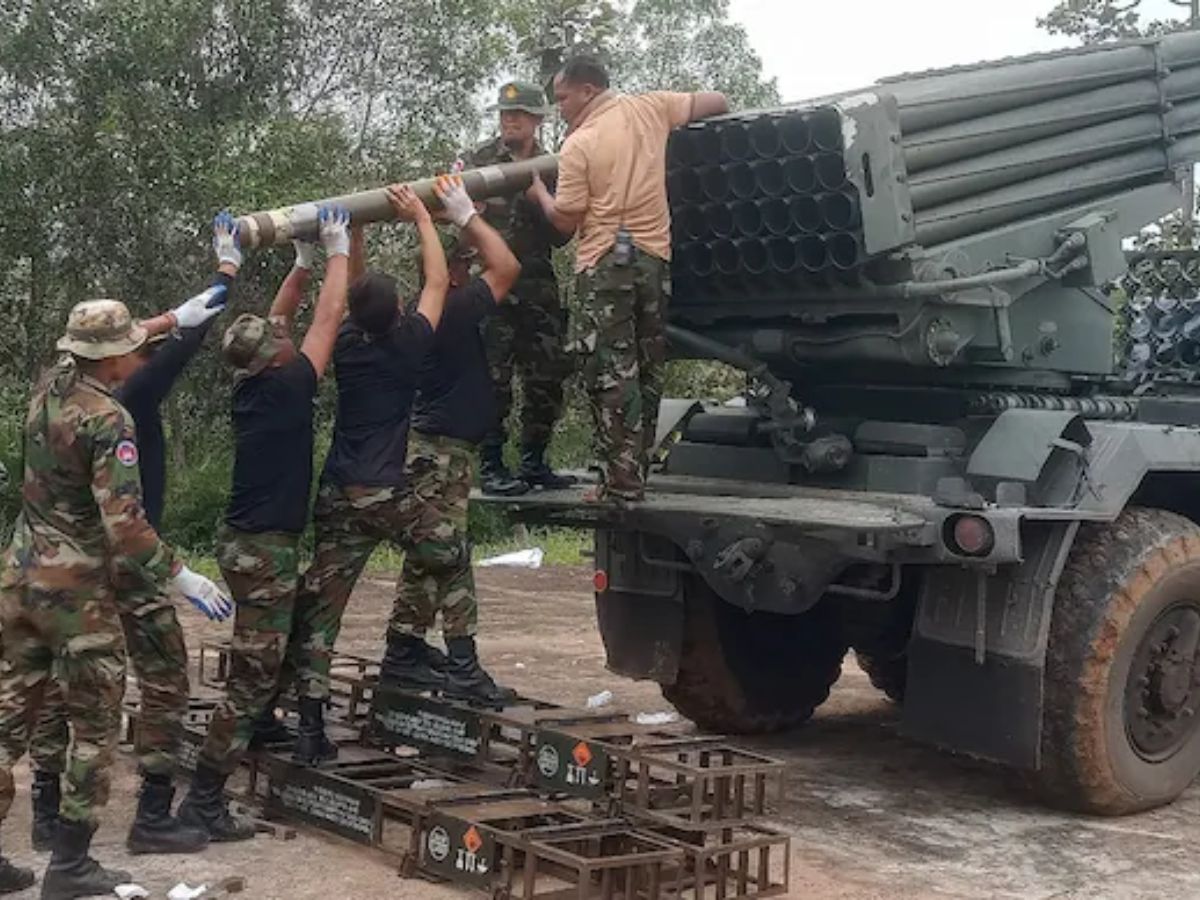Cambodia and Thailand are caught in yet another cycle of vilence with the Thursday’s deadly airstrikes and rocket launched bringing the two Southeast Asian neighbors dangerously close to conflict. A dozen Thai solidieres were killed in rocket attacks from the Cambodia. In response Thaliand carried airstrikes in the neighbouring country. Both countries have accused each other of provoking the latest episode of violence.
Who is India Supporting? Thailand or Cambodia
It will be a complex challenge for India to take sides in this this border dispute. India has an xpanding presence in Southeast Asia through its Act East Policy. If it openly favoring either Thailand or Cambodia, it could jeopardize its broader ambitions in the regional.
Also Read: Thailand-Cambodia Tensions LIVE UPDATES: 14 Killed In Deadly Border Clashes
India And Thailand Relations
India and Thailand share strong diplomatic, military, and economic relations under the Bay of Bengal Initiative for Multi-Sectoral Technical and Economic Cooperation (BIMSTEC) and the wider Act East Policy.
India and Thailand regularly hold joint military exercises such as “Maitree” (army) and “Siam Bharat” (air force). The two countries also haev significant Naval collaboration with joint participation in Indo-Pacific maritime dialogues and anti-piracy operations in the Andaman Sea.
India and Thailand also collaborate on economic fronT having a bilateral trade of around $18 billion. India is trying to expand this through the India-ASEAN Free Trade Agreement and is invested in the India-Myanmar-Thailand trilateral highway project, which will enhance overland connectivity between India and Southeast Asia once completed.
India And Cambodia Relations
India has also relationship with Cambodia on development cooperation, cultural diplomacy, and modest security ties. New Delhi has extended credit and grants to Cambodia supporting infrastructure, IT, education, and water resource projects in the country.
India has also helped in the restoration of iconic sites like Angkor Wat and Ta Prohm temples in a bid to use its soft power to strengthen ties.
The two countries have security partnership also which includes India training and capacity-building the Cambodian armed forces. India also assists Cambodia with de-mining and counter-terrorism efforts under ASEAN frameworks.
The trade between India and Cambodia remains limited at around $300-400 million annually, however India is exploring opportunities to increase its investments in agriculture and textiles.
Cambodia is also part of India’s Mekong-Ganga Cooperation initiative, which aims to boost cultural, tourism, and academic exchanges between th participating countries.
In line of the above reasons, India is not in a position to support any of the two countries.
Given these strong, varied ties, overtly backing one side in the current border standoff risks undermining India’s carefully nurtured trust with the other. India’s Act East Policy stresses regional stability, a cornerstone for its strategic and economic engagement with ASEAN countries.
Role of China in Thailand-Cambodia War
India’s flagship infrastructure project, the India-Myanmar-Thailand Trilateral Highway, which is expected to eventually extend to Laos, Cambodia, and Vietnam, faces potential setbacks if border tensions continue. This overland highway is crucial for linking India’s northeast with Southeast Asia, relying on open borders and peaceful cooperation.
Cambodia is regarded as one of China’s closest allies in Southeast Asia, benefiting from billions in Chinese investment in infrastructure and defense. India, seeking to counterbalance Chinese influence, has cautiously increased engagement with Phnom Penh. However, openly supporting Thailand in this dispute could push Cambodia further into China’s strategic orbit, undermining India’s efforts to reduce Cambodia’s reliance on Beijing.
Historically, India has adhered to a policy of non-alignment and strategic autonomy, particularly in regional conflicts where its direct interests are not immediately threatened. India typically promotes peaceful dialogue and regional conflict-resolution mechanisms rather than intervention or partisan stances.
Also Read: Thailand Carries Out Airstrikes On Cambodian Military Targets Amid Escalating Border Dispute







